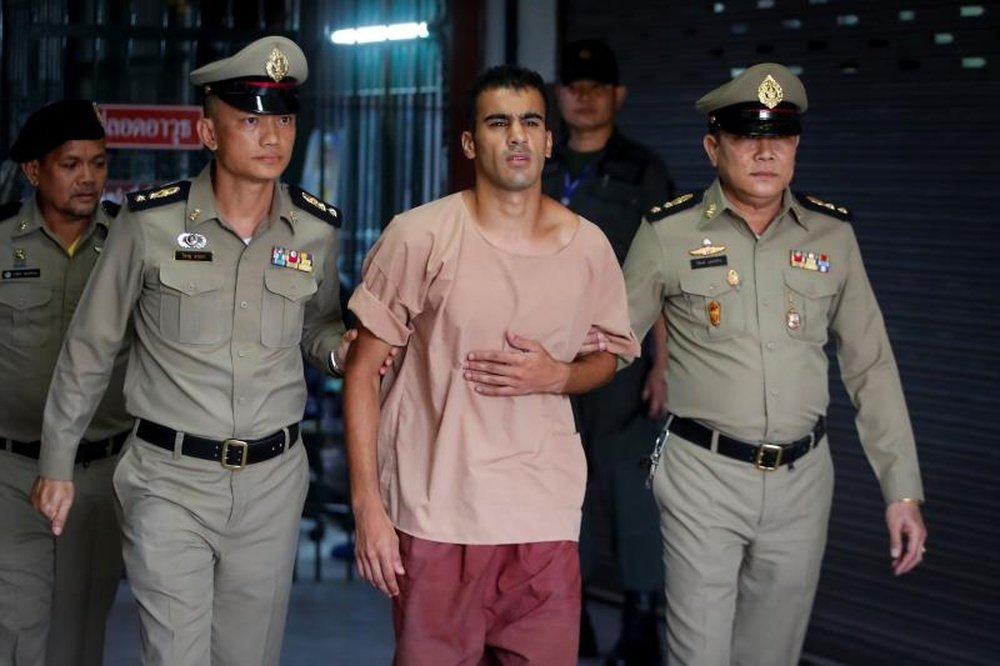Al Araibi's shackles - The photo that has travelled the world


The photo of the refugee and former Bahrainian international in shackles has travelled around the world, but has barely been seen in Thailand itself, since the local authorities have prohibited the publication of uncensored photographs of prisoners.
"The guards said there was a risk the prisoner would flee. Mr Hakeem is a former footballer and is naturally worthy of suspicion in a case of such international weight," argued Krit Krasaetip, director of the Preventative Detainment prison of Bangkok in which Al Araibi is being held.
According to a report about the state of Thailand's prison system published by the International Federation of Human Rights in 2017, even those awaiting judgement in court for petty crimes must wear shackles while being transported to their place of judgement.
"Thailand's justice authorities call them 'wife shackles' and routinely use them when transporting prisoners outside prison grounds, although the law allows those in charge to decide if they want to use this method or not," explains Sunai Phasuk, a human rights investigator in Thailand.
"The use of shackles is considered a violation of Article 7 of the International Pact of Civil and Political Rights," adds Sunai, referring to the article that prohibits acts of cruelty deemed degrading or inhumane.
The practice was extended inside Thai prisons until 2013, when the government decided abolish it. However this and use of other similar objects of oppression has continued to be employed "with excessive frequency", according to the International Federation of Human Rights.
Hakeem Al Araibi was detained in Bangkok airport on November 27 when he arrived with his wide to celebrate their honeymoon. There began a process of detainment which becomes more uncertain by the day.
Al Araibi lived in Australia, where he had moved in 2014 and had been recognised as a refugee in 2017. In 2012 he was arrested for his involvement in the Arab Spring uprisings, which had extended to Bahrain. He has claimed that during this period of detainment he suffered torture.
Thai authorities arrested the footballer last November due to an alert from Interpol released by the Bahrain government which had previously been retired, since Interpol can't accept orders to aprehend refugees from the country from which they have fled.
Despite the order's retirement, a process had already been put in place in which the decision about the footballer's detainment was put into the hands of Thai authorities, who this Monday announced that he would stay in their hands until at least April 22.
Since his arrest, a succession of demands and campaigns in favour of his release have taken place. Those involved include the Australian government and football federation, who are seeking further support from athletes and personalities of the sporting world. The ex-captain of the Australian national team, Craig Foster, has been particularly vocal.
On February 1 the Thai prosecution committee presented to a Bangkok tribunal the extradition demand sent days earlier by Bahrain. During this, Al Araibi was heard to scream "don't send me to Bahrain!"
While his future is decided, the footballer will continue to be locked away behind bars, appearing every now and then before court with shackles around his ankles.



